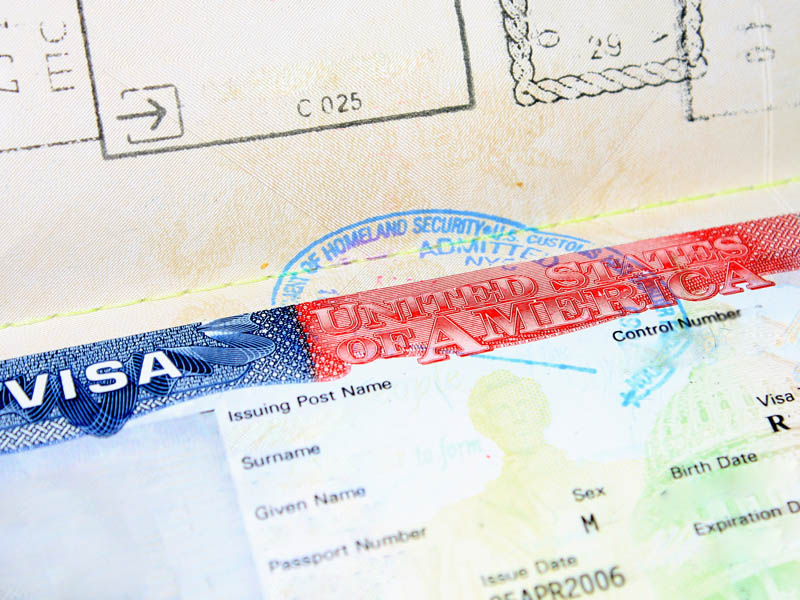AAFP Notches Multiple Advocacy Wins for IMGs
Administration Rescinds, Delays Rules Detrimental to FP Workforce
July 14, 2021, 8:41 a.m. News Staff — The Department of Homeland Security has rescinded a proposed rule regarding J-1 visas that the AAFP opposed because it would have been burdensome for medical students and residents who hold such visas.

In September 2020, DHS published a proposed rule that would have limited visa holders’ time in the United States to a fixed period as short as two years. The proposed change in policy would have replaced a “duration of status” policy that allowed visa holders, including foreign national physicians with J-1 visa status, to remain in the country as long as their course of study lasted. Under the existing policy, family physicians in the United States for a three-year residency were considered compliant with the terms of their visas for the duration of their training program.
The AAFP responded with an Oct. 21 letter to DHS that expressed concern that the proposal would “disrupt patient care in hospitals and clinics across the country, create significant burden on foreign national physicians and exacerbate primary care physician shortages.”
The Academy’s letter highlighted the fact that, according to the Educational Commission for Foreign Medical Graduates, more than 12,000 physicians in residency and fellowship program have J-1 visa status at almost 750 hospitals across the nation, including more than 720 family physicians.
The proposed rule also would have required J-1 physicians to apply for an extension of stay each year after the end of the fixed period, a process that can take more than a year. The changes could have been problematic for family medicine residents, who are required to provide continuous care to a patient population for 24 months in their second and third year of training.
In addition, an Oct. 26 letter to DHS penned by the AAFP and its Group of Six allies expressed strong opposition to the rule because it would have disrupted the training of thousands of physicians.
STORY HIGHLIGHTS
“This will not accomplish the administration’s goal of reducing visa overstays and will instead undermine our nation’s ability to respond to the ongoing COVID-19 pandemic,” the letter stated.
DHS acknowledged that 99% of the 32,000 comments it received were in opposition to the proposed rule.
Although that particular proposed rule was withdrawn, the AAFP continues to advocate on behalf of international medical graduates, who account for more than 20 percent of active family physicians and are twice as likely as their non-IMG peers to practice in health professional shortage areas.
In an April 21, 2021, letter to senators, the AAFP voiced support for the Healthcare Workforce Resilience Act (S. 1024), which would recapture 15,000 unused employment-based immigrant visas from prior fiscal years and reallocate them to physicians to address health workforce shortages in communities most in need. In the same letter, the Academy urged Congress to extend and improve the Conrad 30 program, which is set to expire on Sept. 30.
Under current rules, resident physicians with J-1 visa waivers are required to return to their home countries after completing residency for two years before they can apply for another visa or green card. The Conrad 30 program allows physicians to remain in the United States without having to return home if they agree to practice in an underserved area for three years.
The Academy is responding to a flurry of regulatory activity as the Biden administration undertakes a comprehensive review of regulations published during the final days of the previous administration. Several of these regulations would impact IMGs. For example, the AAFP sent a March 3 letter to DHS expressing agreement with a decision to delay the effective date of a final rule that would eliminate the H-1B visa lottery system and replace it with a ranking system that favors visa applicants with higher wages. The Academy had previously voiced opposition to that rule, and in its more recent letter recommended that DHS reverse its final rule and reinstate the visa lottery, which is used when DHS receives more petitions than is allowed under an annual cap.
The AAFP noted that the rule would disproportionately disadvantage primary care physicians.
“DHS states that the wage ranking system will increase the average and median levels of H-1B beneficiaries that are selected,” the Academy wrote in its March 3 letter. “The AAFP does not agree with this policy goal. We believe that increasing the average wages of H-1B visa holders will make it challenging for hospitals and health clinics to hire them. Since our nation is suffering from an ongoing physician shortage, pricing H-1B visa holders out of the physician employment market will only exacerbate these shortages and worsen barriers to care for patients.”
Finally, in a June 3 letter to the Department of Labor, the Group of Six expressed agreement with the administration’s decision to delay implementation of a final rule that could negatively impact physicians with H-1B visas. The physician organizations urged the department to approve and accept annual wage data from the Association of American Medical Colleges Survey of Resident/Fellow Stipends and Benefits Report for foreign medical residents. That survey is commonly used by residency programs to establish H-1B prevailing wages.
The final rule requires H-1B residents to be paid roughly 20% more than their domestic peers if the Department of Labor rejects the AAMC’s data or other physician survey results. The Group of Six stated in its letter that such a scenario would make H-1B residents unaffordable for most outpatient clinics and training programs, leaving residency slots unfilled and exacerbating issues related to access to care.